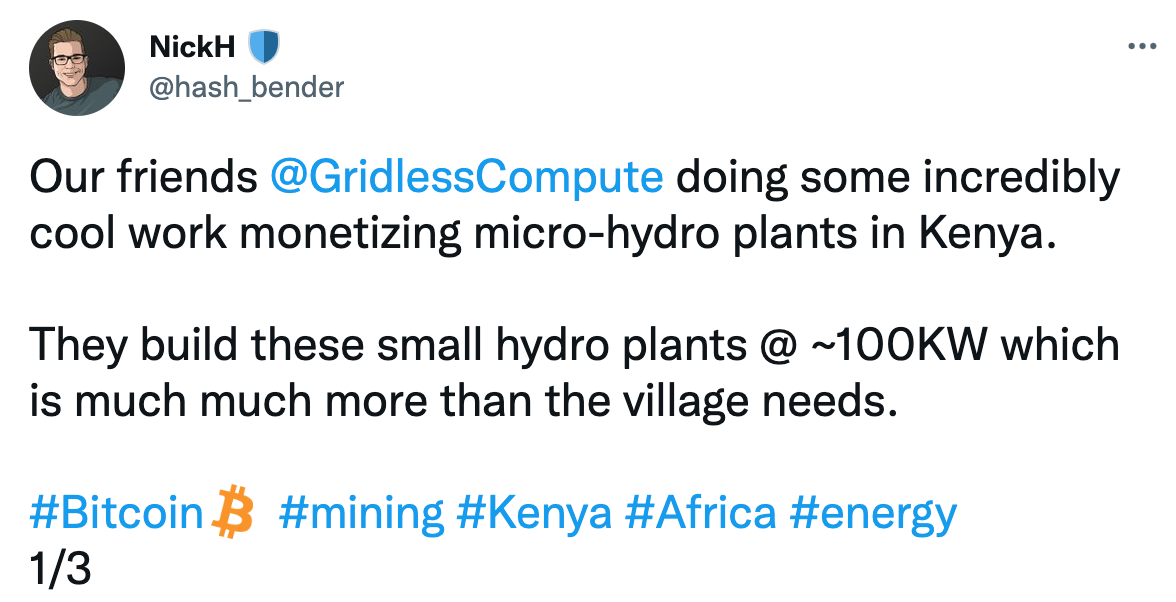
A Kenyan bitcoin mining company, Gridless, recently revealed how it is helping local communities reduce electricity costs by using excess generated power to mine bitcoin. The Gridless model has been hailed because it potentially helps to decentralize bitcoin mining as well as move some hashpower to Africa.
Using Wasted Energy to Mine Bitcoin
Gridless, a Kenya-based crypto mining company, has said the excess electricity from mini-grid hydro generators is now being used to mine bitcoin. The revenue generated from bitcoin mining helps to reduce or subsidize the cost of electricity.
In a recently issued statement, Gridless said while mini-hydropower plants that generate below 100 KW (kilowatts) are being used so far, the company’s objective is to work with larger plants which can generate 500 KW. The bitcoin mining company said:
We’ve been working with mini-grid hydro generators in Kenya on how to use their excess capacity for Bitcoin mining, which also significantly reduces the cost of power to the local community. Small <100kW sites now, working towards 500kW soon.
According to one Twitter user known as Nick H, in Kenyan villages where the power plants are installed, the communities are only using an equivalent of 10% of the generators’ capacity. This means the power plants, which are being built to cater to the respective villages’ future electricity needs, are currently wasting much of the energy being produced.

Nick H posits that by “plugging in a few bitcoin miners to offtake the excess power,” the respective Kenyan villages can lower their power prices by as much as 90%.
Decentralizing Bitcoin Mining
Meanwhile, in addition to helping lower respective Kenyan communities’ electricity costs, it’s said that Gridless’ model — if widely adopted — could potentially see Kenya and the African continent, in general, become an important bitcoin mining hub.
“[This business model] serves as a welcome decentralization of the overly centralized mega-site bitcoin mining that goes on today. Not only does it move some hashing power to Africa, but it also further distributes hashing to smaller sites,” Erik Hersman, a founder at Gridless, said in a blog post.
On Twitter, many users praised Gridless’ “absolutely incredible” business model and some like Anita from Guatemala asked how this could also be done in her country. In response, Gridless advised those interested in replicating this in their respective countries to find a “partner who likes to build small hydro and then work with them on the model so that it becomes a win/win/win for the power producer/community/miner.”
Register your email here to get a weekly update on African news sent to your inbox:
What are your thoughts on this story? Let us know what you think in the comments section below.














